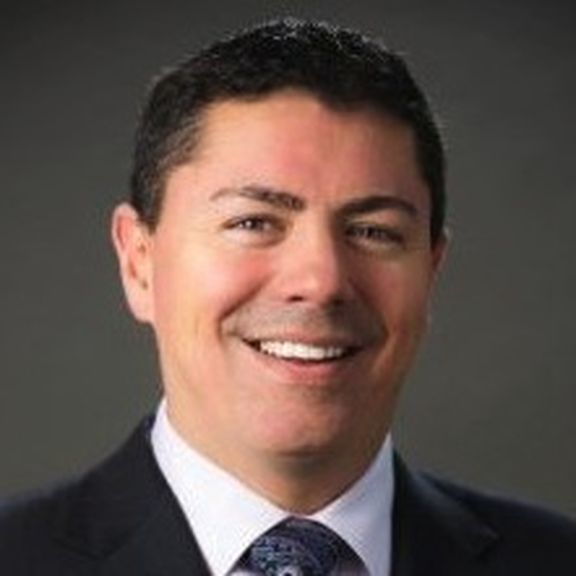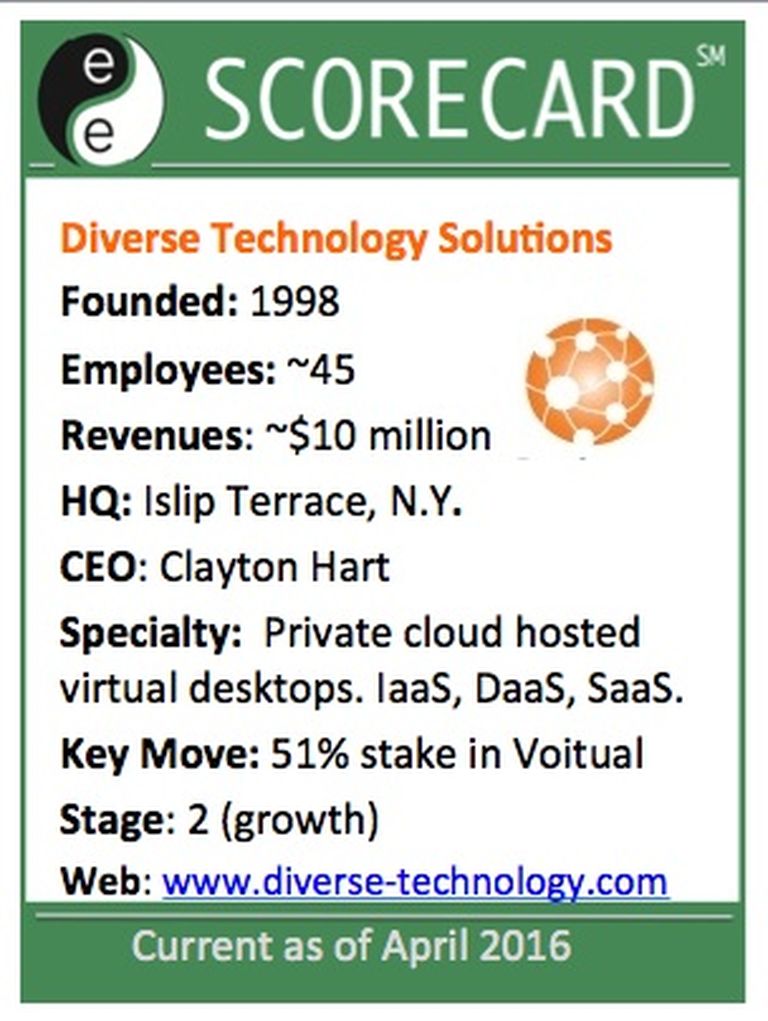
During the course of their evolution all solution providers will ultimately come to a crossroad: Build the technology expertise yourself or align with/acquire another solution provider to more quickly achieve the same goal.
For Diverse Technology Solutions (DTS), an Islip Terrace, N.Y.-based cloud hosting service provider, it decided to purchase hosted voice expertise instead of building that know-how internally. For more than six months, DTS worked on the acquisition of Voitual, a cloud hosted Voice Over IP (VOIP) telephone service provider in Delray Beach, Fla. Fast forward to present day, and the DTS-VOIP service is based on Voitual's technology.
But the business moves don't end there. As part of its expanding cloud services business, DTS is no longer building out its on-premises managed IT services. Yes, the company will continue to support existing on-premises clientele. However, the future is all about building a partner program that peer VARs, MSPs and IT service providers can plug into.
If you look at ChannelE2E's Five Stages of Business guide we consider DTS a stage-two company focused on growth. Clayton Hart, CEO of DTS, described the growth strategy to ChannelE2E.
Deal Synergies
So what exactly attracted DTS and Voitual to each other?
“ the expertise on hosted voice whereas DTS has the expertise on hosted data solutions,” Hart said. “It is a unique combination. DTS’s primary product is hosted virtual desktop and server hosted in a private cloud for its business customers. We now have the opportunity to cross sell hosted VOIP phone service to the same customer base. Since we also offer hosted exchange email we can now integrate voice, data, email and unified messaging all within a virtual desktop session,” he said.

DTS and Voitual are both privately held. Under terms of the deal, DTS now owns a 51 percent stake in Voitual, according to Hart. And there is virtually no overlap on the employee front; the combined companies have 45 team members, all of which are expected to be retained, he said.
Cloud services represented about 65 percent of DTS’ revenue before the deal so the decision to expand on its offerings by adding a cloud hosted voice solution for its customers was an easy one, according to Hart. The new product offering complements DTS’ hosted email, virtual desktop and server offerings -- creating an all-in-one solution for clients seeking to save money on IT expenses by leveraging cloud technology to support their business, he said.
Even though there is virtually no overlap between the two companies, there is always integration work to do, according to Hart. The Voitual team will provide all backend support for the hosted VOIP system that they built, he says. DTS will provide the infrastructure, sales and marketing approach. DTS owns all the equipment upon which it delivers cloud services. "Voitual will be migrating their customers to our data center and infrastructure,” he added.
Hart went on to say, “With the Talent of the Voitaul staff we will be building out hosted VOIP in our same data centers alongside our already successful cloud data solutions. When you combine hosted voice, hosted Exchange and hosted virtual server and desktop all wrapped up in a private cloud solution you’ve got a very unique combination of products -- and we own it all outright. There are seemingly endless possibilities of what we can do with this powerful combination of technology.”
Next Moves: More Cloud, Less On-Premises
In fact, DTS is already testing with some of its application partners’ screen pops from an inbound phone call into the virtual desktop applications, Hart said. “We will inherently be able to do things with virtual desktop that no other provider can right now. Once we tie in unified communications into the virtual desktop and then start integrating into applications that run on the desktop the opportunities for us are endless,” he said.
DTS, founded in 1998, will have revenue exceeding $10 million after the deal, Hart said. And while he doesn’t expect another acquisition anytime soon, he does see a lot of development with this technology over the next 12 to 18 months. Over that timespan, the company will also accelerate its cloud business and related partner strategies, while deemphasizing on-premises managed services.
Summarizing the business moves, Hart said:
“In addition, to this, we are closing our Managed IT services program to new customers. We will no longer be offering on premise IT management or service. Our strategy is to enhance our partner program and go 100% channel based. We already have a strong partner program, but the addition of a voice product makes us that much more attractive. We are the one source MSP’s and IT consultants can come to manage “everything cloud” for their customers. I’ve seen our partners make anywhere from 10-25% profit on our services. We have indeed become a wholesale provider of cloud virtual server, desktop and now voice."

ChannelE2E will follow-up on this story at regular intervals to measure DTS's progress in the cloud market.
Elliot Markowitz is contributing editor, ChannelE2E. Markowitz is a 25-year veteran of IT and vertical market media, the channel and B2B business building. Read his contributions here.




